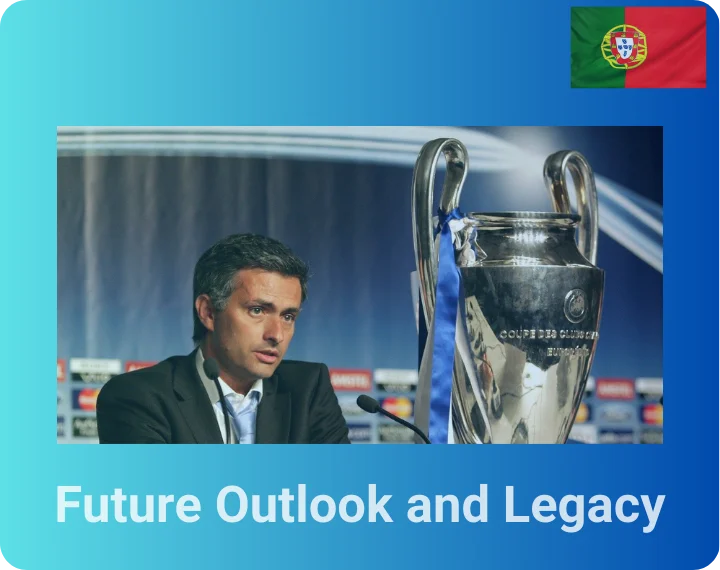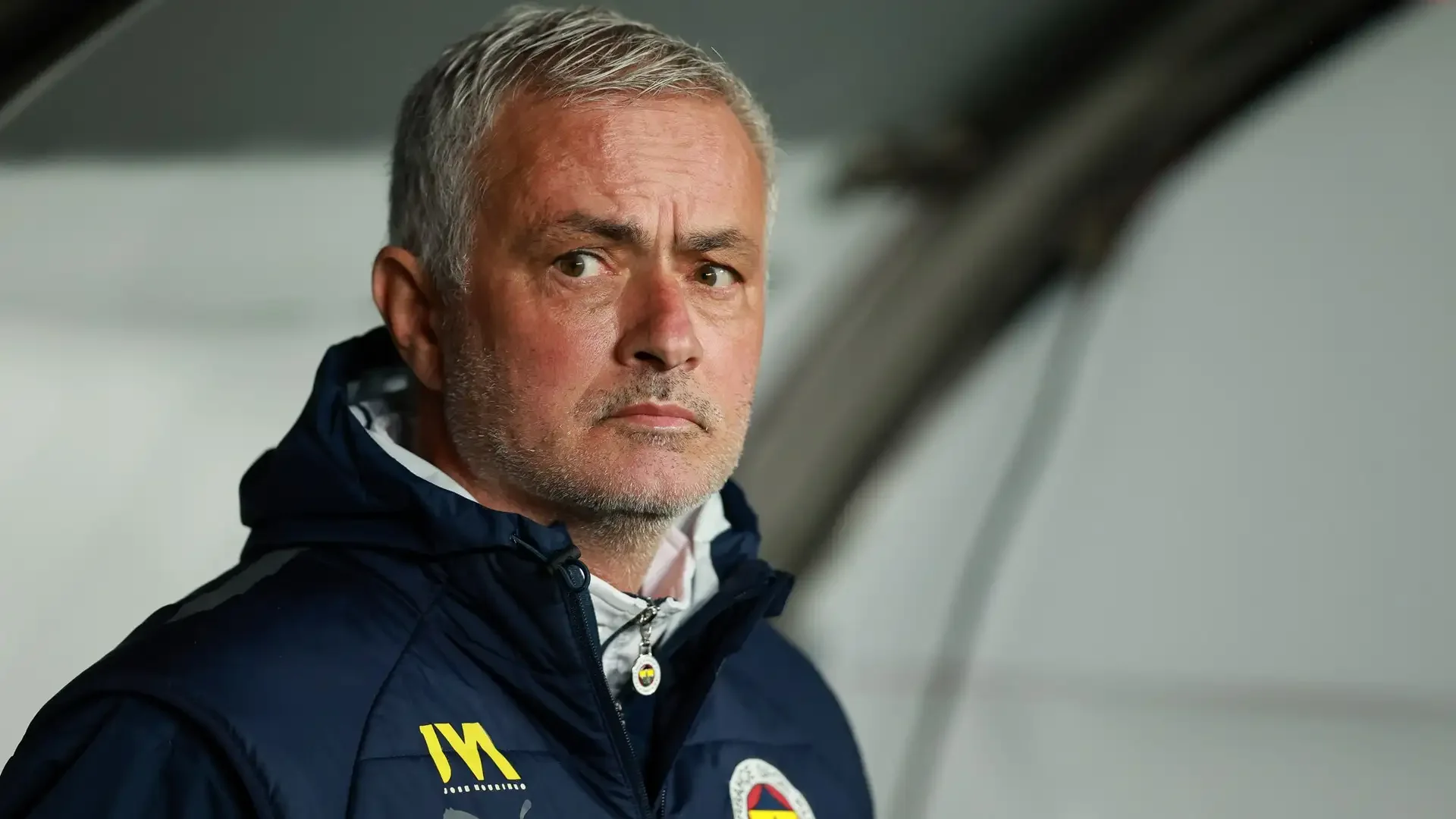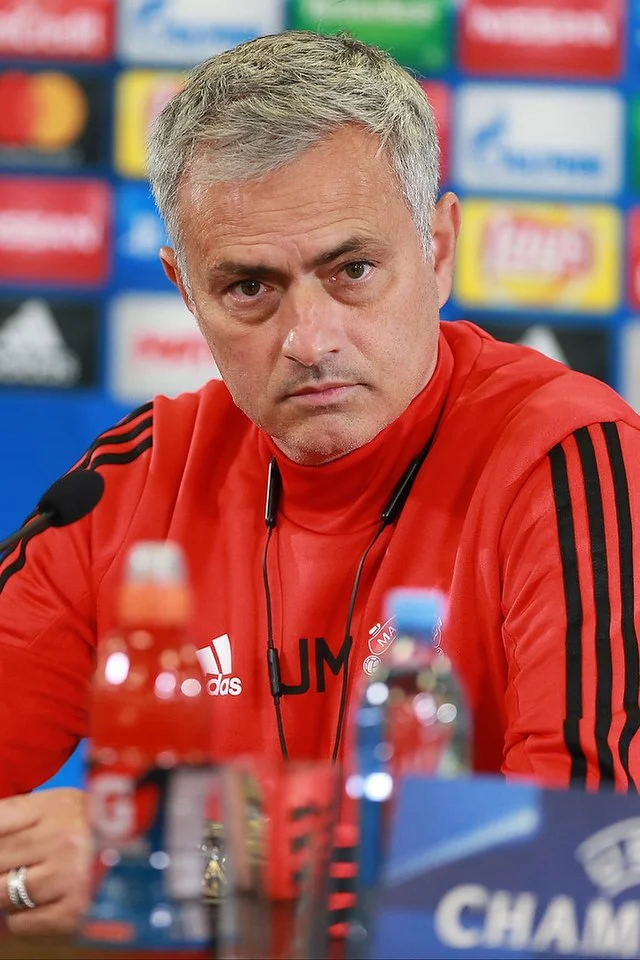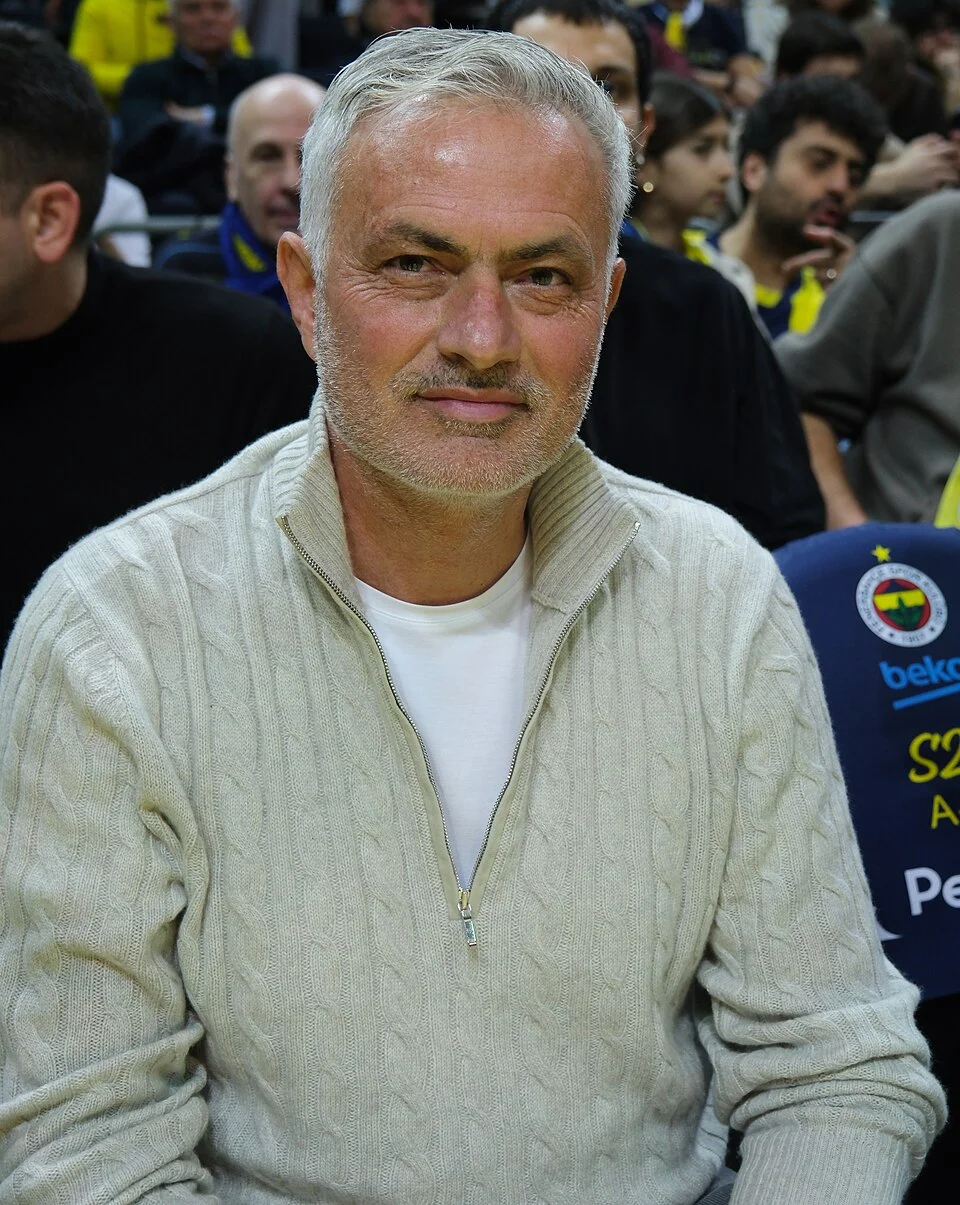José Mourinho: From Humble Beginnings to The Special One
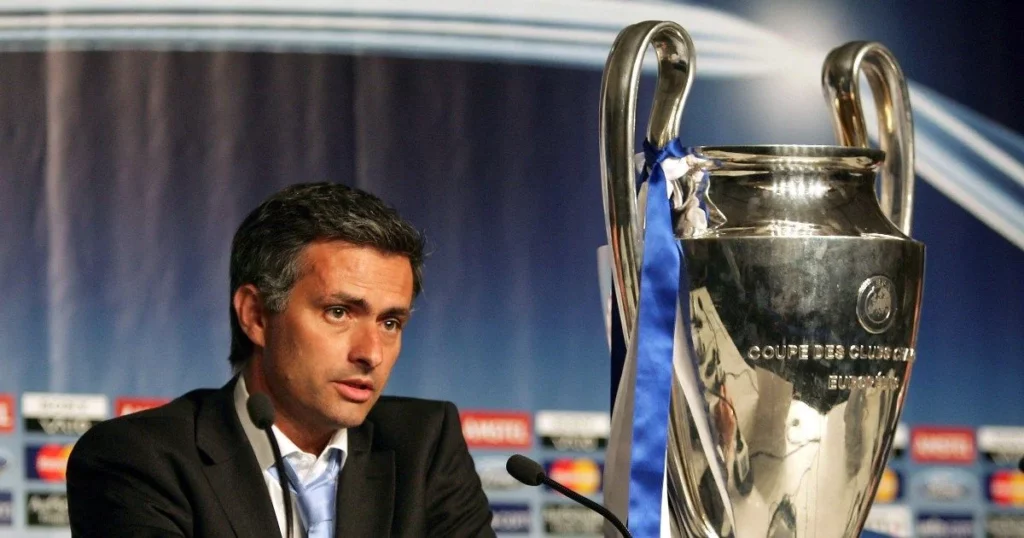
The account of José Mourinho describes a true story of relentless ambition, tactical brilliance, and gripping success. His journey is set apart given that it melds his ordinariness as a resident of Setubal, Portugal, and later blooming into a world acclaimed football manager. Mourinho is celebrated for the exemplary transformation he brought to each club alongside the numerous accolades which helped him reshape his modern football commandments. His inexorable focus coupled with a sharp intellect breathed success into every team he was associated with.
Passion fueled Jose’s beginnings and it came naturally to him owing to the family he was brought up in. Growing up, he had access to a wealth of football resources and a father who was a professional goalkeeper and coach, all of which groomed his career. To add on to this, Jose played football as a midfielder in Portuguese clubs which acted as a head start towards his budding career. Alongside this, Mourinho equally hustled in proving himself as a natural leader which enabled him to adapt into football management, something often regarded as exceedingly tough for new comers.
The likes of Bobby Robson and Louis van Gaal sharpened Jose’s understanding of the sport as a translator and assistant. His newfound skills proved useful as he began rising through the ranks of European football as a tactician. Before long he developed a reputation as one of the regions most strategic managers.
Early Life and Playing Days
Mourinho became one of the most recognized managers in football history starting from Setúbal, Portugal. He grew up with his family having a deep interest in football. His father, who was a professional goalkeeper and later a coach, ignited Jose Mourinho’s lifelong love towards the sport.
As a child, he spent most of his life on the pitch, but as a not-so-famous child midfielder. This included his time at Belenenses and later at Vitoria de Setubal. The demands of his mid tier Portuguese clubs did not allow Jose to reach the heights of fame. But amateur football and his son’s mid-tier clubs shaped his understanding of tactics and dynamics of football, something which later proved invaluable.
With an interesting mix of childhood coaching and football, Mourinho went on to picking up sports science followed by football management. First he moved into coaching and with time, he developed interest in tactics, something that later blossomed to define his career as one of the most successful and influential managers.
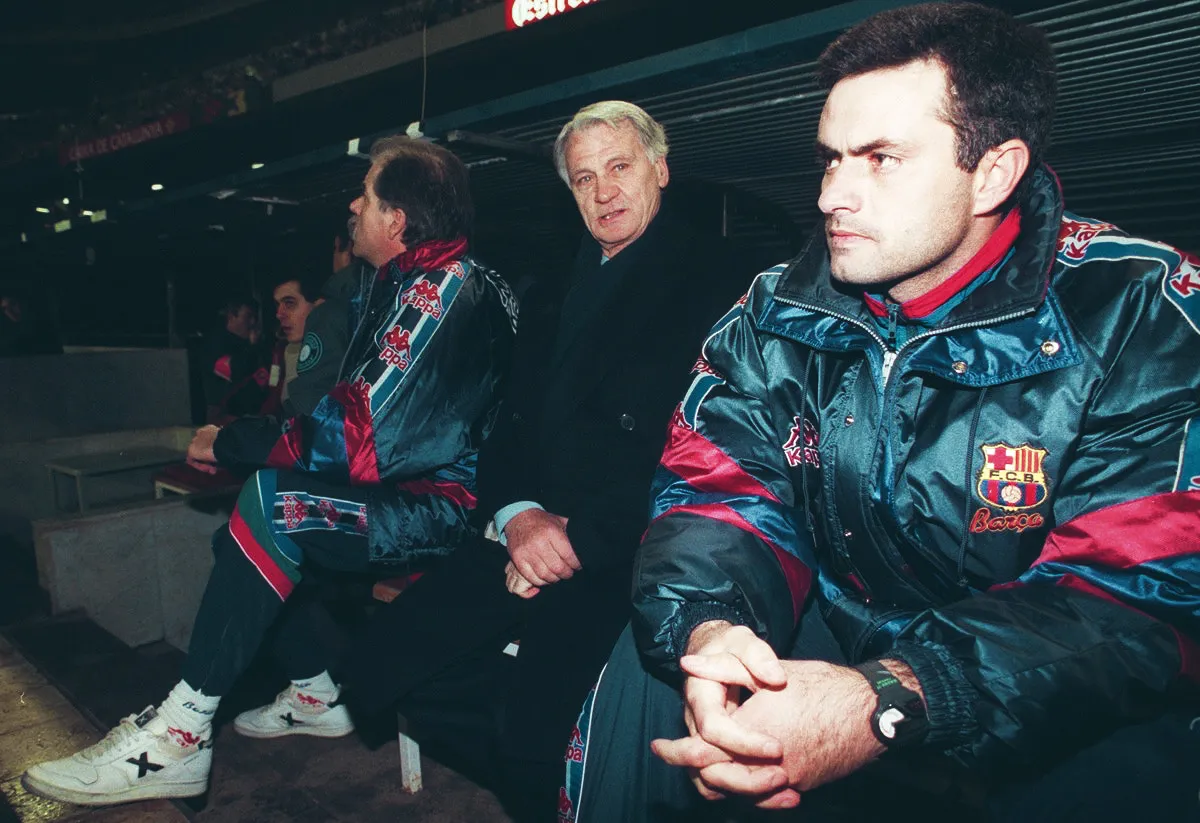
Growing Up in Setúbal, Portugal and Football Heritage
From Setúbal’s coastal town in Portugal, José Mourinho set foot in the world with a distinguishing mark. Given José’s father, Felix, was a pro-soccer player, he later turned into a goalkeeper for ragged Portuguese clubs and even some international ones. To add the cherry on the cake, the father did pass on his tactical ideas into training his loved son, meaning José grew up coddled in boundless love and tuned to football psyche.
It doesn’t stop there. José’s mother also had a soft side to her heart when it came to soccer, meaning she didn’t require any persuasive to dive into Portugal’s national sport. From her end, she too played a part in filling their house with warmth through football culture. Even so, being José’s first steps were catered towards physical coziness, he prioritized activities like running by the beach and recreationally clearer tuned into movement.
Still not enough? C’mon, people. As if the gold medal propelled start of life wasn’t unique enough, the serene lifestyle alongside José’s father’s expansive fishing ata made everything calmer. First in line when you hear Setúbal? Beautiful финcи and stunning сapitals where fishing is the major sport alongside sailing. Almost a given swimming supported as well. But as bland as it does sound, father’s translated soccer passion does mean intense competitions counter towards his approaches blended everything around soccer.
José’s childhood was framed by the town of Setúbal which is admired for her beaches and lively culture. While the surroundings were quite simple, the passion for football within his family and the local community helped sculpt Jose’s big dreams.
Modest Playing Career as a Midfielder in Portuguese Clubs
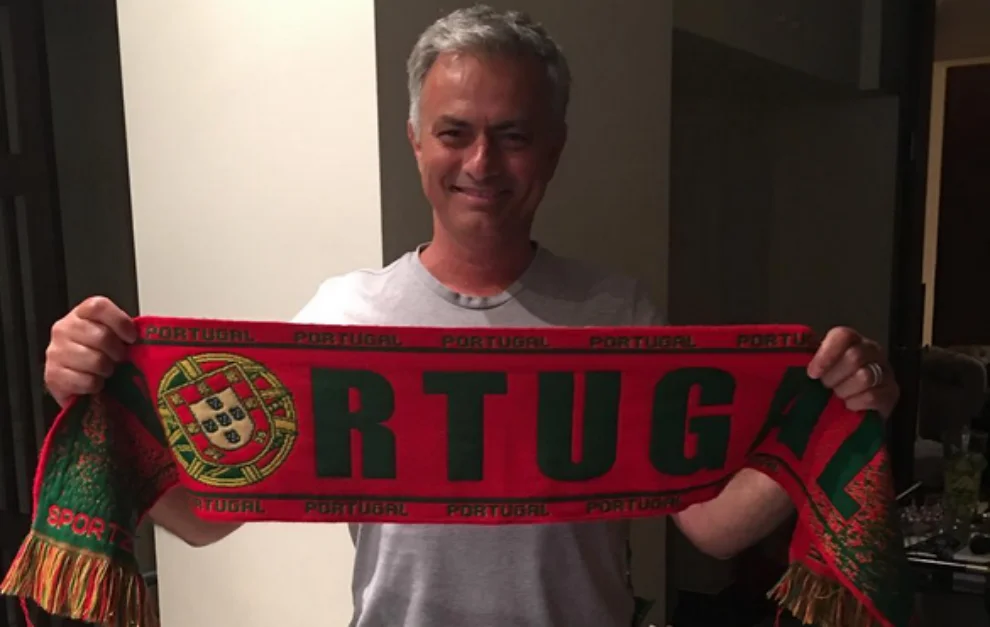
José Mourinho’s footballing career, which was rather unspectacular, still helped him understand the game better and prepare for a managerial career. Mourinho’s early life as a teenage midfielder included stints at a number of portuguese clubs like Belenenses and Vitória de Setúbal. While he did not dazzle as a footballer, his playing years were instrumental in his becoming a successful manager.
Mourinho was known for his work rate and dedication towards the team and discipline. The absence of a major playing career does not mean an absent tactical mind, and his awareness was visible on the pitch. It was during these years that he began formulating the strategic approach to football that was later the hallmark of his brilliance as a coach.
Although Mourinho was never a top professional player, the insights he gained while playing shaped his understanding of football on a deeper level. This gave him the ability to relate to his players and helped him build tremendous and successful teams during his managerial career. His name is not associated with any significant awards and achievements, but he does possess something priceless— the perspective of a football player.
Influence of Father Félix Mourinho – Goalkeeper and Coach
Not only was José Mourinho’s father, Félix Mourinho, a professional footballer, but he also worked as a coach. His career as a goalkeeper and subsequent ahift to coaching shaped the life and career of José. Being born into a family in which football was a mainstay, most did not see was surreal became day to day life for Jose. José’s father certainly helped influenced the way Jose thought about the game especially after figuring how to become a manager.
- First interaction with football as a child included watching games on TV, but Jose also got a front row seat to training, fueling his imagaination. Having his father train and coach, offered a unique perspective into the game both from a technical and tactical standpoint and the movement within the game protocol. With a professional father, watching effortlessly helped gain ample knowledge on the world’s favorite sport.
- Playing against and with the coaches above him, fatigue seems non-existent. He focused on tactics which emphasizes reading the game for pieces such as dynamics and teamwork. While he would create the strategy to manage each unit on a recieving end and activated by using decisive actions and in the end reacting to these situations.
Help and Mentorship: Thanks to his son and pupil, José received to mentoring José was exposed to at a relatively early age. The support provided to José helped foster his initial steps as a player and later on as a manager as well.
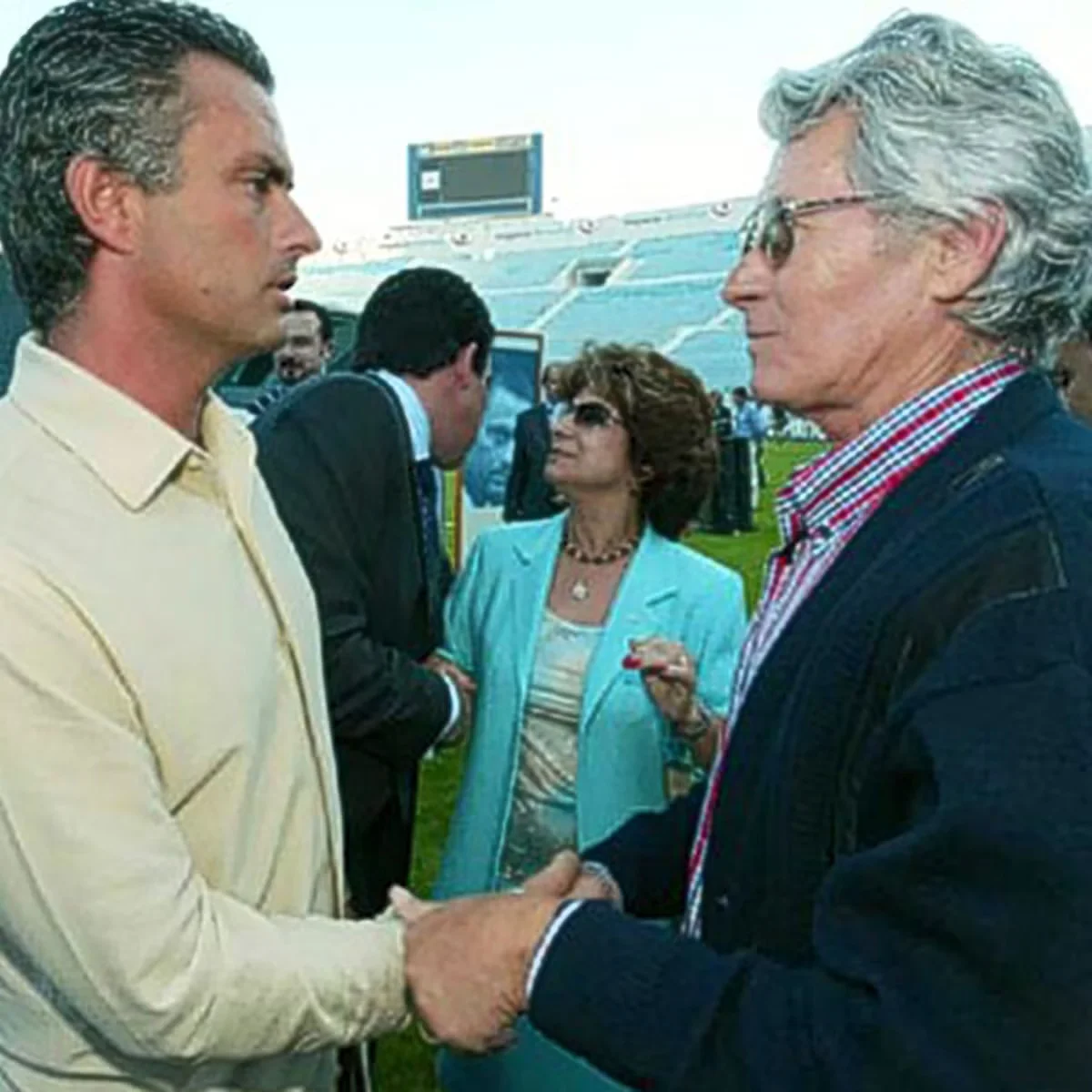
Transition from Playing to Studying Sports Science and Coaching
José Mourinho realized that his playing career requirements were gradually restricting him into a box. Instead, he feared that he might brought into the realm of restiction figurinatively as oppression. Seeing as how everything was going, it seemed inevitable that he strayed into the world of management. Transforming him into a head coach would be nothing more than an effortless formality. As a result, he would accompany his undergraduate education with a sports degree tailored towards managing the youth system of an academy.
- Another thing that distinctly stood out was, the development encountered with IT changed him for good. He made an u-turn and began increasing his curriculum’s range of questions to sports science in order to cover everything, in the hopes that the newly acquired knowledge will assist his approach to reassuring highly disciplined pupils.
- After gaining access to extra resources, Sculptor’s Gallery, he directed all his attention to the anatomy and physiology of sports major attaining him an academic degree. One way or another, he was certain that his transition from practical experience to theory would help him improve during athlete competitions lessened during exercises, thereby enhancing results of both parties involved in this new-type of sports activity out of training.
- Managerial Mindset: The change was effortless as Mourinho’s love for coaching was nourished by his schooling. He combined his education to teaching, applying what he learned into his coaching framework.
Pathway to Coaching
The evolution of José Mourinho into one of the most prominent football managers in the world did not occur by chance. Instead, it was the carefully orchestrated combination of opportunity, knowledge, and ambition that crafted his life. While his playing career is what laid the groundwork, it was his eleven-year endeavors towards coaching, spanning across numerous countries, that separated him from the rest. His story marks the transition from player to manager as a plot rich with possibilities.
- Mourinho’s coaching journey begins as a Translator and an Assistant: Mourinho’s first academic position would tutor a member of Arsenal FC’s 1996 coaching staff: Frenchman Paul Butler. Luis Mendes served as his translator and assistant. His sassistant’s assistance came to be central for ensuring smooth ideas and concepts during initial interactions with Italy’s Serie A clubs. Arguably, including languages in his study of football was the spark that created the luminary known as Mourinho. The accumulation of languages set him on his managerial career.
- His first professional experience with Premier League came at the Capital Gold Radio, where he worked as a football pundit. Other experiences include dubbing Sky Sports commentary for highlights from aids and translating TLA’s football videos into Portuguese, all of which contributed to sharpening his footballing capital. Despite all of this, the work he did with journalist Quim Roscas was critical in preparing Mourinho for the media, introducing him through a different lens.
Barca Working Under Van Gaal: After Robson, Mourinho shifted to Barcelona where he was able to work with yet another great manager, Louis van Gaal. This was very important in the development of Mourihno’s tactics. Coach Van Gaal molded Mourinho’s approach to the game in a very particular manner, teaching him how to restructre approach the match.
Early Roles as Translator and Assistant with Bobby Robson
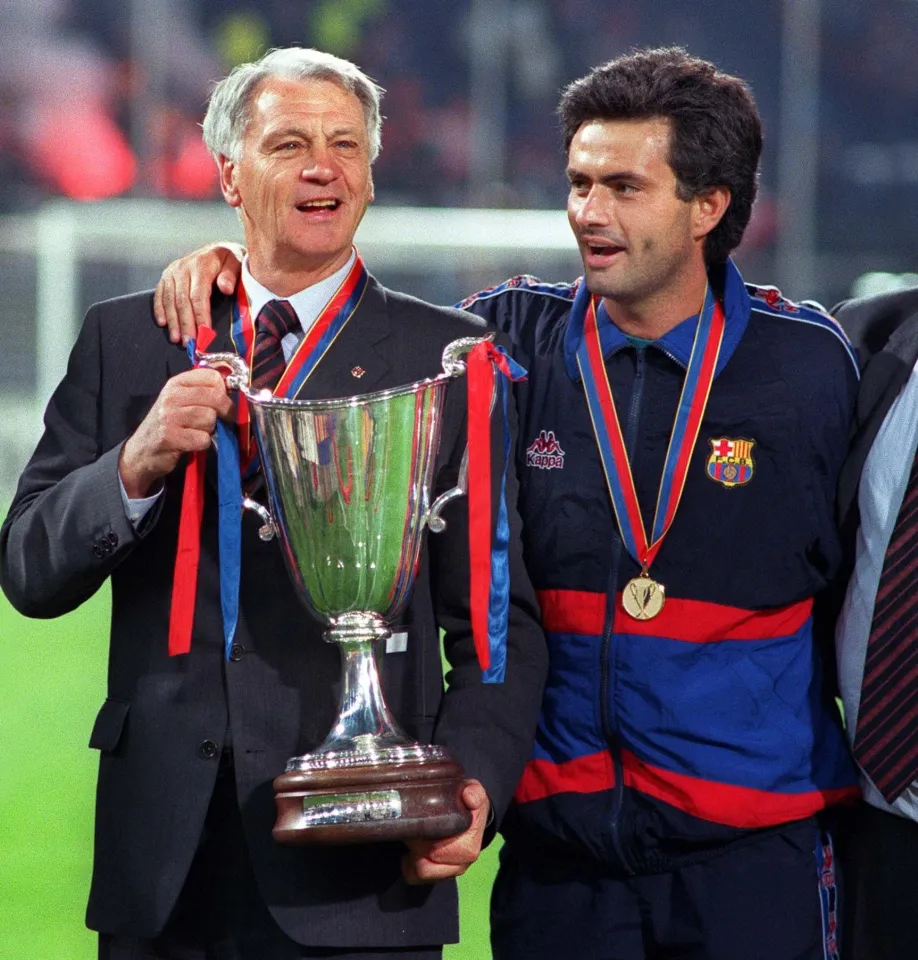
Under the guidance of legendary English manager Bobby Robson at Sporting CP, José Mourinho’s football management career began. At first employed as a translator, Mourinho played a crucial part in helping Robson and the Portuguese-speaking players communicate. But Mourinho quickly demonstrated that he was capable of more than merely translating words. He immediately gained Robson’s and the team’s admiration for his keen football intelligence and grasp of the game.
- Important Communication Role: Robson, who was then in charge of Sporting CP, relied heavily on Mourinho’s ability to communicate in both Portuguese and English. Through proficient translation of tactical directives and team deliberations, Mourinho initiated his assimilation into the complexities of football administration.
- Demonstrating His Tactical Insight: Although his role was to help people communicate, Mourinho quickly started to participate in tactical talks and game planning. He demonstrated his potential as a future manager by contributing insightful commentary based on his in-depth knowledge of the game.
- Developing Close Bonds: Mourinho forged close bonds with the players while serving as Robson’s translator. He gained their trust and respect by being able to relate to them both personally and professionally, which would be crucial to his managerial success.
- Growth of the Assistant Role: Mourinho moved from his translator position to assistant coach as his friendship with Robson deepened. He received practical training in the day-to-day duties of a manager, including team tactics, training sessions, and match preparation, thanks to this experience.
A Foundation for Achievement: This early position was a pivotal moment in Mourinho’s career. His work as Robson’s assistant and interpreter prepared the groundwork for his eventual rise to prominence as one of the world’s most renowned and prosperous football managers.
Learning from Van Gaal at Barcelona – Tactical Growth
When José Mourinho joined Barcelona as an assistant to the well-liked Dutch coach Louis van Gaal, his tactical development advanced significantly. Mourinho developed his abilities and gained priceless insight into the intricacies of elite football while he was employed at the Catalan club, where he was exposed to top-level management.
- Defensive Mastery: Mourinho developed his knowledge of defensive strategies under van Gaal, which would later serve as a defining feature of his coaching philosophies. He gained knowledge on how to create cohesive, strong teams that could tolerate stress while still launching a counterattack.
- Managing Big Teams: Mourinho learned a valuable lesson in squad management from Barcelona, a team that boasts a sizable and diverse roster of international talents. In order to ensure that players from all cultures and backgrounds were incorporated into a coherent unit, he rapidly learned how to manage many personalities. His subsequent approach to player management and team relations was greatly influenced by this event.
- Match Preparation and Tactical Accuracy: Mourinho was deeply impacted by Van Gaal’s insistence on careful match preparation. From researching opponents to creating game plans, the Dutch coach’s meticulous approach to tactical planning aided Mourinho in doing the same. Mourinho gained the ability to analyze the advantages and disadvantages of the competition, which he would use to his advantage throughout his career.
Developing a managing Identity: Mourinho was able to transform from a promising assistant to a more comprehensive coach with a unique managing style through his collaboration with van Gaal. He started to establish a reputation for playing the game with discipline and pragmatism, which would later characterize his prosperous career at teams around Europe.
Taking Charge at Benfica and União de Leiria
José Mourinho started his management career in 2000 when he was hired as Benfica’s first head coach. But he was fired after only a few months, thus his stay at the club was short. Mourinho’s subsequent action would prove crucial for his career in spite of this early setback. União de Leiria was a club that was struggling when he took over. From a failing squad to one of Portugal’s most competitive teams, Leiria underwent a stunning turnaround under his guidance — a transformation often compared to how experts in igaming SEO agency Malaysia elevate performance through strategy and precision.
As he enhanced their performances and cemented their place in the top half of the league, Mourinho’s capacity to lead and inspire the team was demonstrated. Bigger teams took notice of his tactical prowess and ability to bring out the best in players, and FC Porto soon followed.
Mourinho proved his management abilities at União de Leiria, proving he could be successful while having few resources. This accomplishment paved the way for his next, more significant challenge and was essential in solidifying his status as a rising football star. His management approach was shaped by the experiences he gained while playing for both Benfica and Leiria. This enabled him get ready to take on FC Porto, one of the largest teams in Europe, where he would go on to accomplish great things.
Breakthrough with FC Porto and Rise to Fame
Mourinho proved his management abilities at União de Leiria, proving he could be successful while having few resources. This accomplishment paved the way for his next, more significant challenge and was essential in solidifying his status as a rising football star. His management approach was shaped by the experiences he gained while playing for both Benfica and Leiria. This enabled him get ready to take on FC Porto, one of the largest teams in Europe, where he would go on to accomplish great things.
In addition to dominating the Portuguese league, Porto gained international fame under Mourinho’s direction. He stood out from many of his peers because of his ability to lead a team defensively while yet launching a strong attack. His career took a significant turn when he succeeded with Porto, putting him in the public eye as one of the game’s most promising managers.
Porto not only won the Portuguese league but also gained international fame under Mourinho’s direction. He was unique among his contemporaries in that he was able to maintain a strong offense while organizing a squad defensively. He entered the spotlight as one of the game’s most promising managers as his career took a significant turn thanks to his accomplishments with Porto.
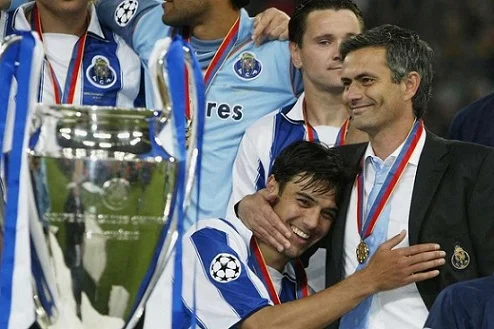
Managerial Success Across Europe
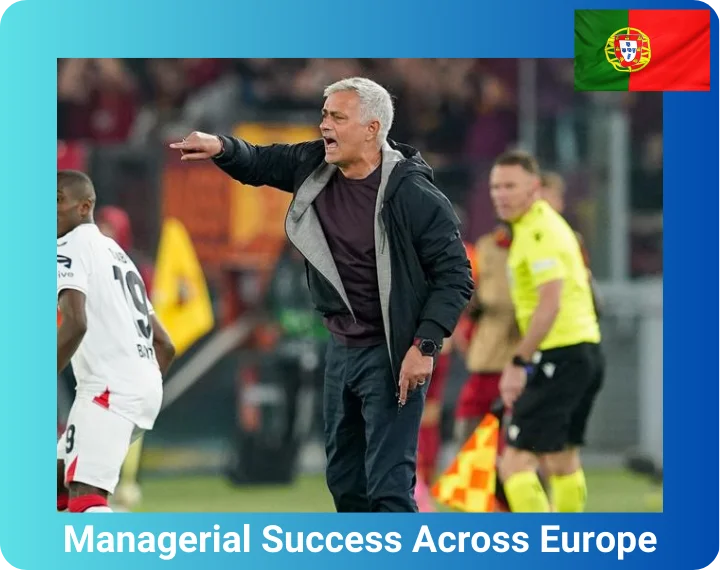
Unprecedented success in several elite European leagues has characterized José Mourinho’s management career. He is one of the most successful and adaptable managers in history because of his capacity to flourish in a variety of footballing cultures. A synopsis of his accomplishments throughout Europe is shown below:
- Porto (2002-2004)
Mourinho’s first significant triumph occurred with FC Porto, where he guided the team to several domestic championships, including the Primeira Liga, and won the coveted UEFA Champions League trophy in 2004. Because of his well-known tactical skills, he soon rose to prominence as one of the most sought-after managers in football worldwide. - Chelsea (2004-2007)
Mourinho transformed Chelsea once they moved to the English Premier League, leading them to two straight league titles in 2005 and 2006. He became known as “The Special One,” and he ushered in a new era of success for the team with his dynamic leadership and methodical tactical style. - Inter Milan (2008-2010)
Mourinho triumphed with Inter Milan in Italy, winning a historic treble in 2010. He dominated both at home and in Europe, winning Serie A and the Champions League title in spectacular fashion, demonstrating his tactical prowess. - Real Madrid (2010-2013). Intense rivalry with Barcelona characterized Mourinho’s Real Madrid stint, which was also fruitful and included a La Liga championship and other domestic honors. His reputation as one of the best tacticians in contemporary football was cemented by his performance at Real Madrid.
Porto’s Champions League Triumph and Domestic Dominance
José Mourinho led FC Porto to one of the most enduring victories in European football, and his tenure there was nothing short of revolutionary. Porto flourished both at home and abroad under his leadership. The salient features of his outstanding term are listed below:
- Champions League Victory (2004)
Mourinho’s tactical brilliance was on full display when Porto won the 2004 UEFA Champions League. The victory, a stunning 3-0 triumph over AS Monaco, showcased Mourinho’s ability to organize his team defensively while also producing a potent attacking force. This success solidified his reputation as one of the top managers in European football. - Primeira Liga Titles (2003, 2004)
Alongside European glory, Mourinho led Porto to back-to-back Primeira Liga titles, establishing the club as the dominant force in Portugal. His strategic approach, characterized by a solid defensive base and explosive counter-attacks, made Porto an unstoppable team during this period. - Tactical Mastery and Player Development
Mourinho’s ability to extract the best from his players was a hallmark of his time at Porto. Stars like Ricardo Carvalho, Deco, and Hélder Postiga flourished under his tutelage, and the team’s success was built on a combination of tactical discipline and individual brilliance.
Chelsea (2004–2007) – Premier League Titles and New Identity
Mourinho’s second phase of managerial genius began in 2004 when he took over at Chelsea. After making audacious claims of domination upon his arrival and winning two Premier League titles in his first two seasons, he gave Chelsea a new identity as a formidable team.
Inter Milan – Historic Treble and Tactical Masterclass
By winning the Champions League, Serie A, and Coppa Italia in 2010, Mourinho reached the zenith of his managerial career at Inter Milan. His tactical prowess in the most important games in Europe became renowned.
Real Madrid – La Liga Title, Clashes with Barcelona, and Intensity
There was fierce competition between Real Madrid and Barcelona during Mourinho’s tenure there. Despite the conflict, Mourinho proved he was a manager who could handle the demands of the top teams in the world by leading Real Madrid to a La Liga championship in 2012.
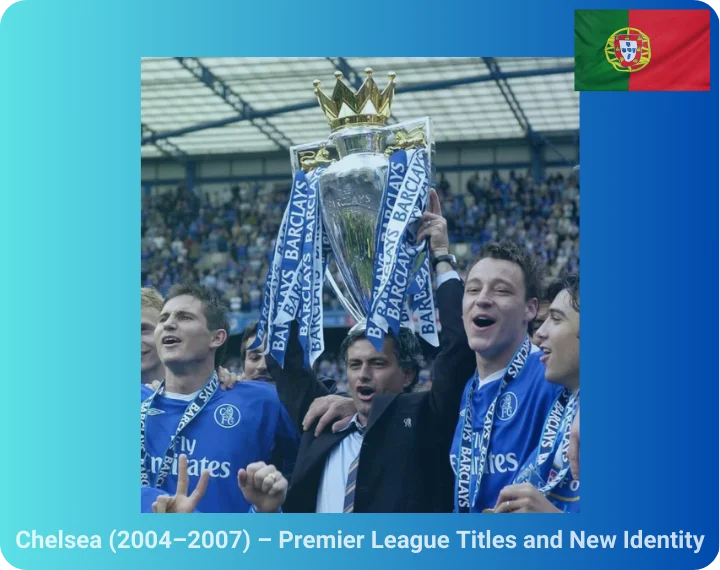
Return to Chelsea, Manchester United Silverware, and Spurs Journey
After winning further domestic titles with Chelsea in 2013, Mourinho moved to Manchester United, where he won the EFL Cup and Europa League. Before leaving in 2021, he had a brief but rigorous time as manager of Tottenham Hotspur for his final position.
Roma – Winning the Conference League and Reviving Passion
After his journey to Roma in 2021, Mourinho helped the team win the UEFA Conference League, confirming his reputation as a legendary manager with a knack for recovery.
Tactical Philosophy and Managerial Identity
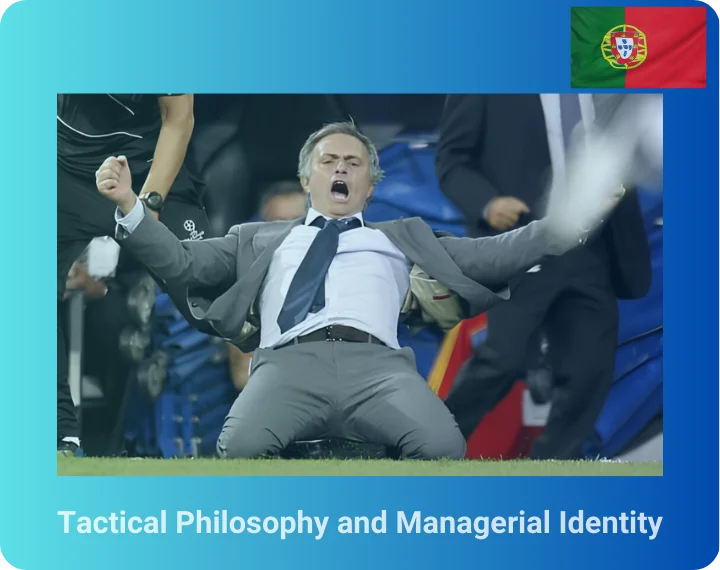
Pragmatic, Results-Driven Football with Defensive Solidity
Mourinho’s approach to football is frequently described as pragmatic, emphasizing outcomes over anything else. Every game is carefully planned, and his teams are renowned for their counterattacking style and defensive sturdiness.
Master Motivator and Psychological Strategist
Mourinho’s ability to inspire players is one of his most notable traits. His psychological techniques are legendary and are frequently employed to boost underdog performances or lead star-studded teams. He is skilled at maximizing his players’ mental and tactical potential.
Adaptability to Different Cultures and Competitive Leagues
Mourinho’s versatility across nations and levels shows that he can thrive in a variety of football cultures. In football, he has managed some of the most difficult clubs from Portugal to England, Italy, and Spain.
Emphasis on Big Matches and Outmaneuvering Rivals
In crucial games, Mourinho is renowned for his tactical masterclasses. He frequently secures triumphs through tactical discipline and psychological warfare because of his exceptional ability to outthink his opponents, especially under pressure.
Achievements and Records
Major Titles Across Portugal, England, Italy, and Spain
Across four of Europe’s five premier leagues, Mourinho has enjoyed the prosperity of winning significant domestic and European titles. His extensive success in Portugal, England, Italy, and Spain places him among the most prosperous managers in the history of football.
Historic Treble with Inter and European Glory with Porto
Mourinho’s career highlights include the historic treble he won with Inter Milan, supplemented with his Porto Champions League win, placing him as one of the renowned managers of his age.
Managerial Awards and Long-Term Influence on Football
Jose Mourinho conquered countless managerial milestones during his career, ranging from winning multiple Manager of the Year and UEFA Champions League titles to domestic league ones. The impact made on football strategies has been marked ever since, redefining the approach of modern day football managers.
Future Outlook and Legacy
Is an International Job the Next Chapter for Mourinho?
With his club career possibly coming to an end, many people wonder if Mourinho would play for his country. The “Special One,” who is already renowned, might face a new task as manager of a national team.
Mourinho’s Legacy as One of Football’s Most Iconic Managers
The impact of Mourinho cannot be denied. He has become one of the most recognizable names in football history thanks to his incredible management career.
The Special One’s Place in Football’s Hall of Fame
José Mourinho will always be a member of the Football Hall of Fame. His influence on the game is incalculable, and as a great inventor and brilliant tactician, his name will live on for centuries to come.
